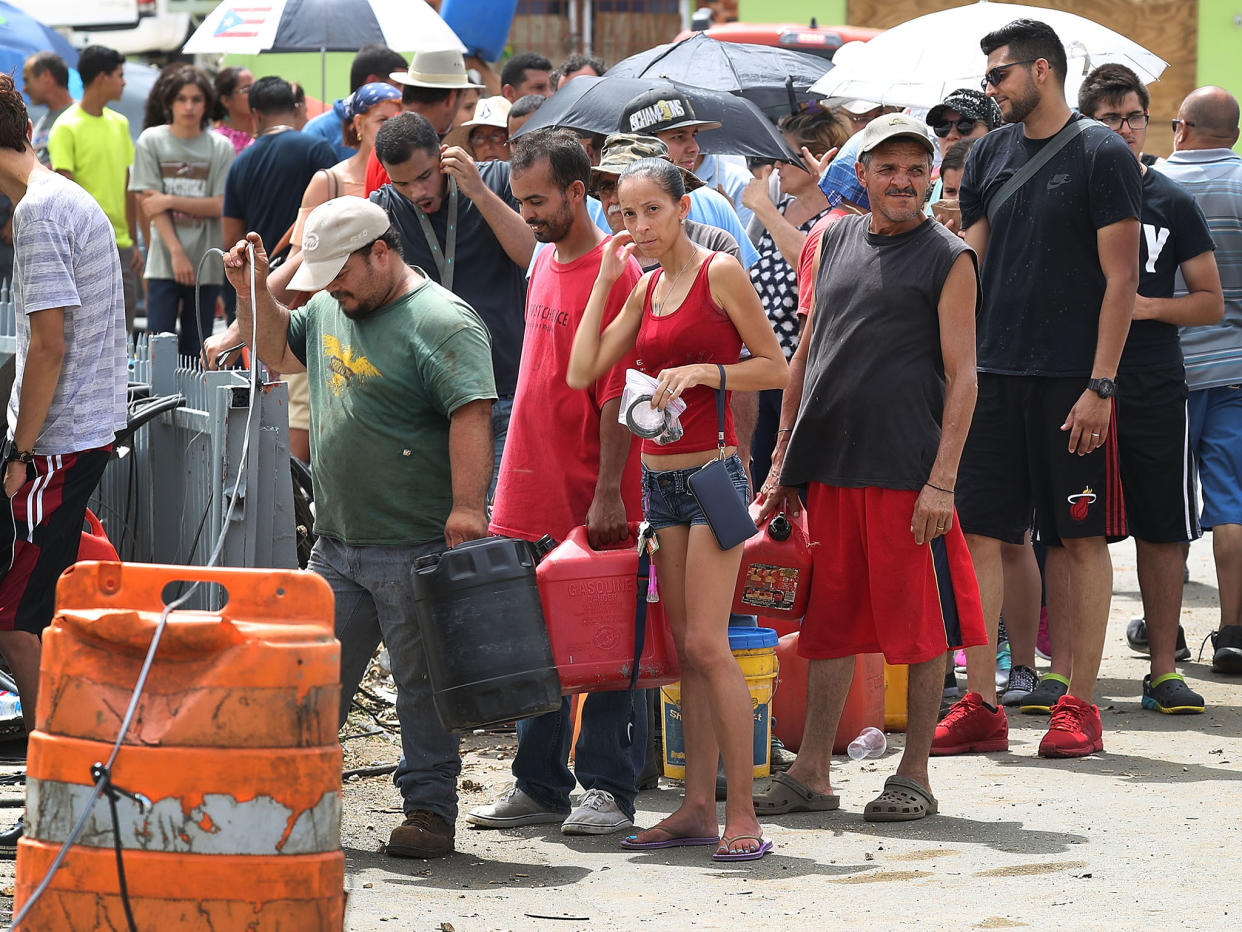Trump backs down and allows foreign ships to deliver aid from US to Puerto Rico after Hurricane Maria

Donald Trump has announced he will allow foreign owned ships to deliver relief supplies from US ports to Puerto Rico following a furore over his previous comments that it would upset American shipping firms.
Both Republicans and Democrats urged the President to waive the 1920 Jones Act, an obscure law which requires all goods carried between US ports to be transferred on US ships, saying it could help get desperately needed aid to the island after it was battered by Hurricane Maria.
After the White House had announced the act would be waived, Mr Trump said on Twitter: "The electric power grid in Puerto Rico is totally shot. Large numbers of generators are now on Island. Food and water on site."
Acting Homeland Security Secretary Elaine Duke waived the law earlier this month to help ease fuel shortages in the Southeast following hurricanes Harvey and Irma. That order included Puerto Rico, but expired last week shortly after Hurricane Maria struck.
The Trump administration initially insisted the waiver was not needed because the US had enough ships to deliver goods but an unnamed official from the Department of Homeland Security warned there was a bottleneck with unloading cargo at the island’s damaged ports and getting supplies inland, as well as a shortage of diesel fuel.
Speaking to reporters on Wednesday, Mr Trump said: “We’re thinking about that but we have a lot of shippers and a lot of people... who work in the shipping industry that don’t want the Jones Act lifted. And we have a lot of ships out there right now.”
But both sides of Congress urged Mr Trump to agree to lift the ban, saying it would speed up and lower the cost of the recovery.
Several politicians have pointed out that it is much more expensive to ship goods to Puerto Rican ports than it is in nearby Jamaica or the Dominican Republic.
They have also pointed out that the US Virgin Islands, which have also been hit hard by the hurricanes which have battered the Caribbean in recent months, was given a permanent waiver in the original act.
Republican senator John McCain said: “These emergency waivers have been valuable to speed up recovery efforts in the impacted regions.
“It is unacceptable to force the people of Puerto Rico to pay at least twice as much for food, clean drinking water, supplies and infrastructure due to Jones Act requirements as they work to recover from this disaster.”
Nydia Velazquez, a New York Democrat who was born in Puerto Rico, also urged Mr Trump to approve a waiver saying the disaster could prove to be "his Hurricane Katrina".
She said the situation on the island was "a humanitarian crisis" and need a "massive response from the federal government" which had "not happened".
“Puerto Ricans are without food, clean water and electricity,” she said. “We must use every tool at our disposal to channel assistance to the island.”
Dear @realDonaldTrump I know you've probably already seen this, but I just wanted to make sure!
Don't let your people die like this. pic.twitter.com/mDO848JAUx— Rihanna (@rihanna) September 28, 2017
Mr Trump has been criticised over his seemingly lax response to the disaster in Puerto Rico, compared the federal response to hurricanes in Texas and Florida, with even Barbadian singer Rihanna tweeting the President urging him to not to "let your people die like this".
A week on from the disaster, at least 97 per cent of the island is believed to still be without power and around half of residents do not have running water.
But the American Maritime Partnership, which represents more than 400 US shipping companies, said a waiver would hinder relief efforts.
Waiving restrictions on foreign vessels that carry cargo to Puerto Rico "could overwhelm the system, creating unnecessary backlogs and causing confusion on the distribution of critical supplies throughout the island,"' said Thomas Allegretti, the group's chairman.
Domestic shipping companies moved approximately 9,500 containers of goods to Puerto Rico in the wake of Hurricane Maria, including a large container ship that arrived Sunday with more than 35 million pounds of cargo, the group said.
"The largest bottleneck is not getting goods to the island, but delivering goods once they arrive," Mr Allegretti added.
The Jones Act was first passed during at the start of an era when the US moved towards protectionism and isolationism after the First World War.
Over the following decade politicians erected high trade barriers and used virulent isolationist rhetoric about staying out of Europe’s problems – similar to the protectionist rhetoric used by Mr Trump on the campaign trail last year.
Additional reporting by agencies

